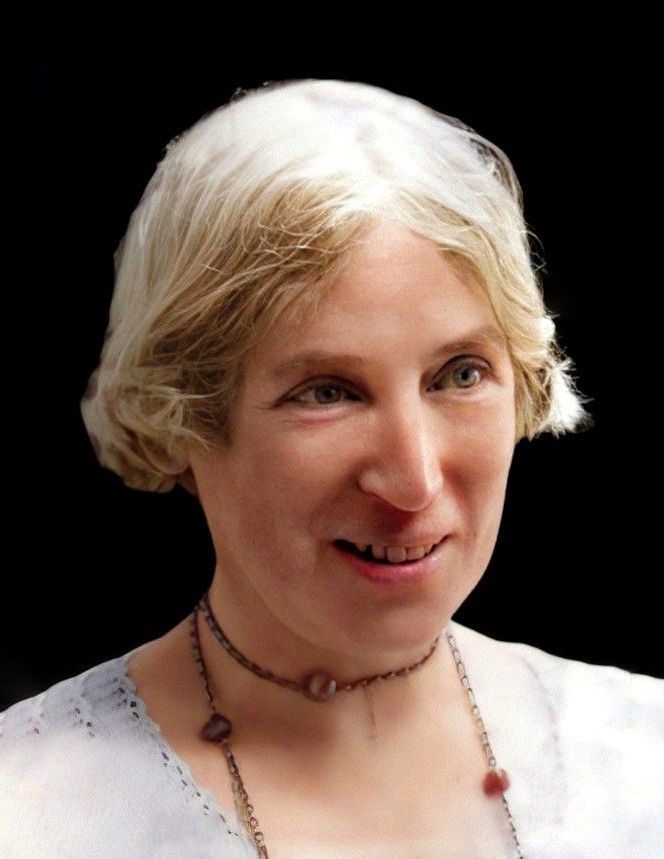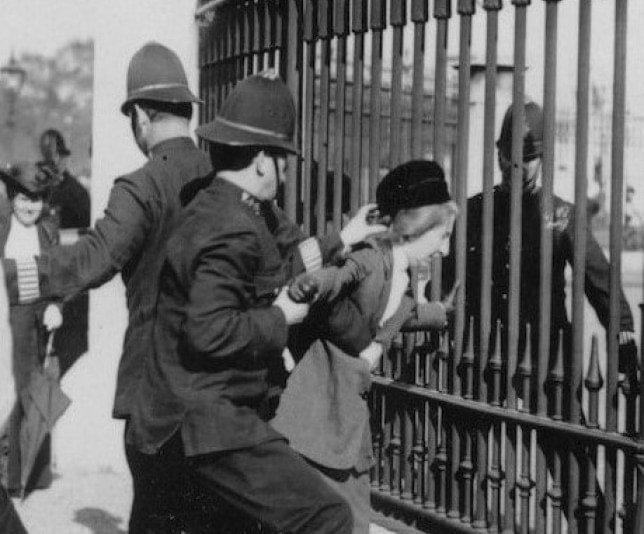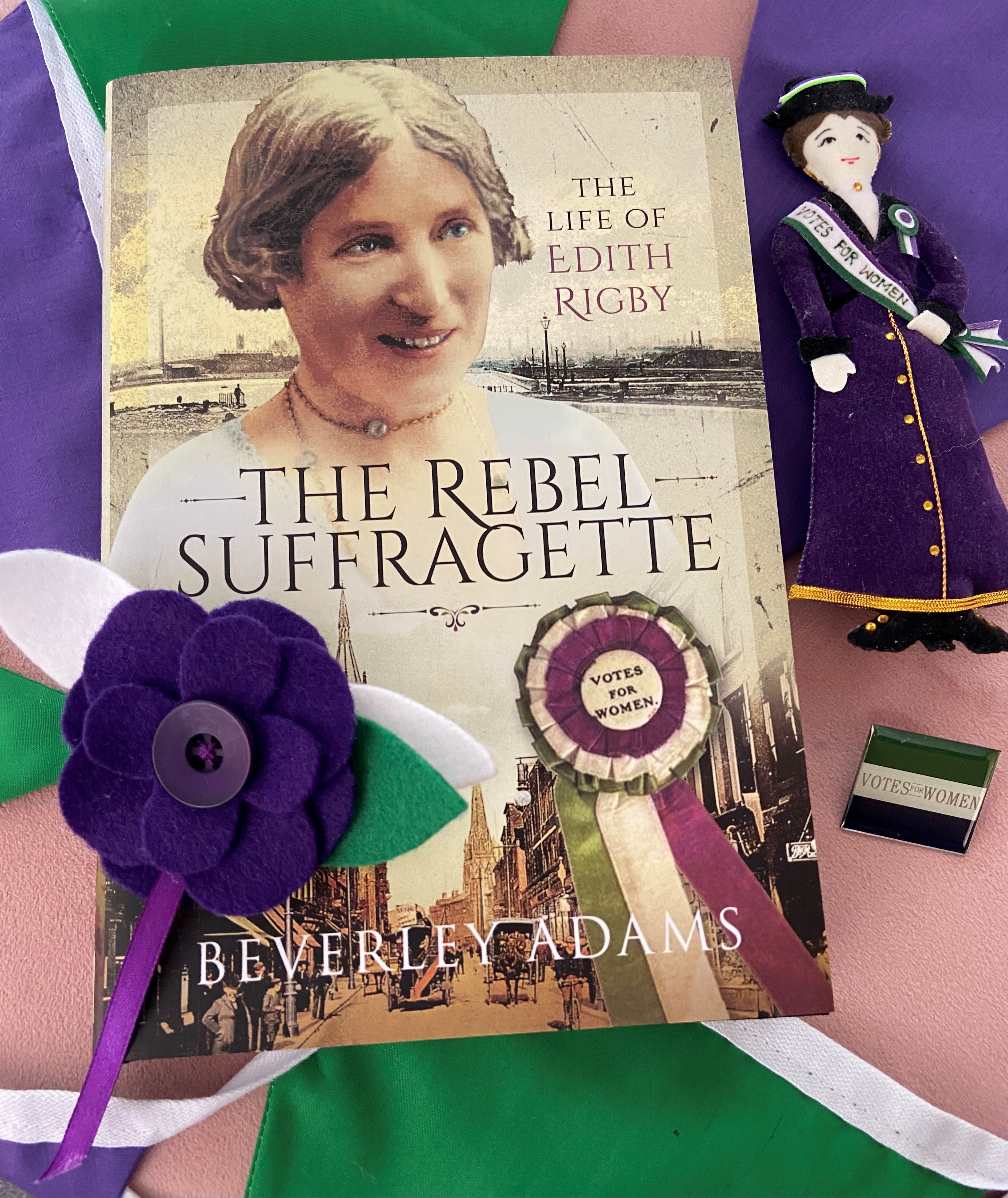Five Facts about Edith Rigby
Author guest post from Beverley Adams.
Edith Rigby was a suffragette. She took part in many of the WSPU’s campaigns as part of the ‘Votes for Women’ initiative and even led a march at Westminster. She was fierce in her commitment to the cause and got herself involved in setting off explosives, arson and vandalism she was imprisoned several times and force fed on numerous occasions. But, she was much more than a suffragette; she fought for women’s rights within the workplace, especially in mills and factories and offered assistance to women that were domestically abused by providing a safe haven for them and their children.

Edith was educated and middle class, once married she lived in a grand Georgian house in Preston’s most desirable address but she understood how fortunate she was and was determined to give something back to those less fortunate than herself. From a young age she was aware of her privilege, one Christmas morning aged twelve years old she left the family home to give out little toys to the poorer children on their way to church, understanding they probably would not be receiving much else, she had saved up her pocket money to buy little trinkets. This epitomised Edith and she would grow into a caring, kind and considerate lady, albeit with a feisty side.

1.Edith sets up a school for working mill women
One of the biggest projects Edith got involved in was the setting up of a night school/social club that young female mill workers could go along to. They would be taught practical skills such as hygiene and needlework along with fun activities like singing and dancing. In the summer months they would go down to the park to play cricket and rounders and would even visit the gardens of local country houses. For Edith, the education of these girls was paramount; she saw the long hard days that girls as young as twelve worked and was desperate to broaden their horizons. Edith would pay for the rent of the room and the girls would enjoy a social life where friendships were built that would last a lifetime.
2. The First Woman to Ride a Bicycle in Preston
Being a woman never stopped Edith from doing anything she wanted, she was determined that her gender would not stand in her way. In 1888 at the age of sixteen Edith Rigby became the first lady in Preston ride a bike. She pestered her father to buy her a lady’s cycle and off she went down the cobbled streets of Preston. The populace was shocked and dismayed, it was scandalous and improper for a lady to ride a bike, the younger residents threw rotten eggs and veg as she rode past but Edith did not care. As far as she was concerned this was a mode of transport to get from one place to another, she was a young woman who wanted to go places so this gave her the independence to do as she wished and not be beholden to anyone. At the age of eighteen she cycled 200 miles to her friend’s house in Leicester and rode home the next day, nothing was going to stop Edith from doing her thing.
3. Inventive ways to attract attention!
Throughout her campaigning life Edith never shied away from a challenge and was always willing to get involved. She led charges at Westminster and when it came to rallies closer to home she was as ready as ever armed with some choice weapons. In 1909 Winston Churchill visited Preston to hold a meeting at The Public Hall. Armed with this information, Edith gathered her best women and plotted an attack. They wanted access to the hall so they could hear the speeches but women were banned, in fact the cordon that was set up to keep them out radiated streets away so Edith decided the women should be armed with potatoes, they could attach written messages and fling them in the general direction of the speakers should they get close enough. Unfortunately they were arrested before they could launch them. Edith was not to be thwarted again by food; in 1913 she travelled to Manchester to hear Labour MP for Derby talk at the Free Trade Hall. After she had heard enough she stood and pulled a black pudding from her pocket and commenced pelting them at the bemused MP. The freshness of the sausages was questionable given it was Easter Monday.
4. A Considerate Mistress
Edith lived on Winckley Square, the most fashionable address in Preston and had a handful of servants to help her run her house and look after her husband and son. But she was a mistress of a different kind; she did not insist on uniforms and even encouraged the staff to dine with the family in the dining room. On one occasion Edith took umbrage when her husband complained that his evening meal was not on the table when he expected. So, in true Edith fashion she took herself off to London without a word, she took a job in service at the home of an aristocrat. Her aim, other than to annoy her husband, was to see what it was like working in service so that she could understand and appreciate her staff better. Her husband managed to track her down, eventually, but Edith came home in her own good time.
5. Founder of the WI in Lancashire
Edith was someone who always wanted to help others, during the First World War she grew fruit and veg in her cottage garden to take to market and in 1918 she founded the Women’s Institute in Lancashire by creating the Hutton and Howick branch, of which she became secretary. The values of the WI were very close to Edith’s own including the fight for women’s rights. She would turn up to meetings on her bike wearing trousers with bobbed hair but Edith it was never about appearances but about helping people and her local community.

The Rebel Suffragette is available to order here.


